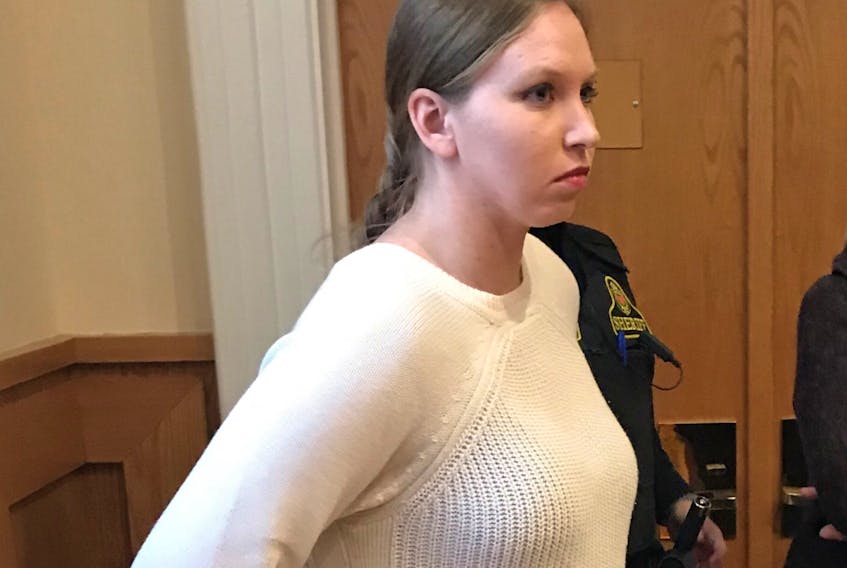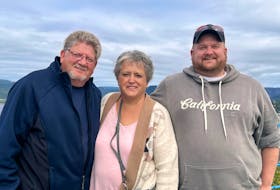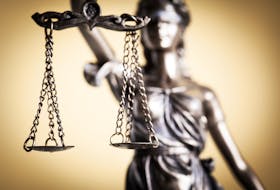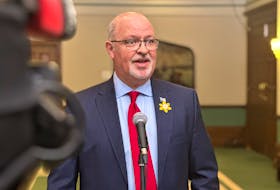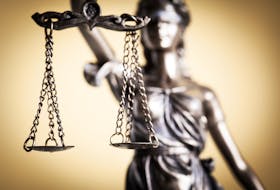The jury that found Anne Norris not criminally responsible for killing Marcel Reardon may have reached a different verdict if they had heard certain wiretap recordings that had been excluded as evidence at her trial, a prosecutor told the court Friday morning.
Lloyd Strickland presented arguments on behalf of the Crown in an appeal of the verdict in Norris's trial, saying the trial judge erred in excluding the prison cell recordings from evidence. He also should not have excluded the medical records and reports of prison psychiatrist Dr. David Craig, who had conducted an interview with Norris in the days after she was arrested for Reardon's murder, Strickland said.
Strickland also argued that the trial judge, Justice William Goodridge, should have limited the scope of evidence provided by a doctor who testified during the trial as a surebuttal witness for Norris's legal team.
Norris, 31, admitted to killing Reardon, 46, by hitting him repeatedly in the head with a hammer in May 2016, but her lawyers — Rosellen Sullivan and Jerome Kennedy — argued she should be found not criminally responsible for his death by way of a longstanding mental illness causing her to experience delusions and psychotic episodes.
Prosecutors Iain Hollett and Jeff Summers argued there was no evidence Norris was suffering from such episodes at the time she killed Reardon, and maintained she planned to kill him and knew exactly what she was doing.
On Feb. 24, after a six-week trial that included the testimony of 31 witnesses, the jury agreed with the defence. Norris was transferred from jail to the Waterford Hospital two days later, and will remain there until she is deemed safe to live in the community by a review panel, or the verdict is overturned.
Prosecutors wanted to use a series of prison cell recordings, in which Norris is heard talking about serial killers, making up murder stories and a rhyme called "Goodnight Marcel," and calling herself “a psycho” and “a messy monster.” The recordings were obtained by police through an agent wearing a wire while chatting with Norris in May 2017, a year after Reardon was killed, and Hollett and Summers said the recordings address Norris's credibility and her state of mind.
Strickland said the same before the appeal panel Friday, saying the jury could have been instructed on how to use that evidence.
"How can a case be properly tried if only evidence that supports the defence be presented to a jury, not evidence that rebuts it?" he asked.
Kennedy and Sullivan reiterated the argument that led to the original exclusion of the recordings, saying the audio would have a prejudicial impact on the jury, and the Crown had decided during the trial not to use certain portions of the audio that the judge did not exclude.
"In the context of the evidence the jury already had, for the reason the Crown wanted this in here, there was no other purpose (except a prejudicial one)," Sullivan told the panel. "There was so much evidence as to what Ms. Norris was doing (the night Reardon was killed), in fact it was like the jury was there with her."
Strickland argued Dr. Craig's interview with Norris in the days after her arrest should have been included, partly because he was the first psychiatrist to have contact with her after Reardon's death and was not acting on behalf of police or questioning her about what had happened.
Kennedy pointed out the jury had heard evidence that Norris had scored low on a psychopathy test. The Crown had videos of Norris's statements to police, which came before Craig's interview, and had chosen not to present it, he said.
When it comes to the issue of surebuttal — the rebuttal of a rebuttal — Strickland said Goodridge wrongly allowed Norris’s lawyers to present evidence that went too far.
In rebutting the testimony of forensic psychiatrist Dr. Jasbir Gill, who told the court she believed Norris knew what she was doing when she killed Reardon, defence lawyers called in Ontario-based forensic psychiatrist Dr. Gary Chaimowitz, who said he thought Norris was delusional at the time she killed Reardon and was attempting to protect herself.
Sullivan pointed out the Crown had been aware in advance of the questions she and Kennedy were planning to ask Chaimowitz.
Norris sat quietly in the courtroom as the appeal in her case was heard, wearing shackles on her ankles. Members of the Norris and Reardon families also attended the proceedings.
The appeal panel will publish their decision at a later date.
Twitter: @tara_bradbury

